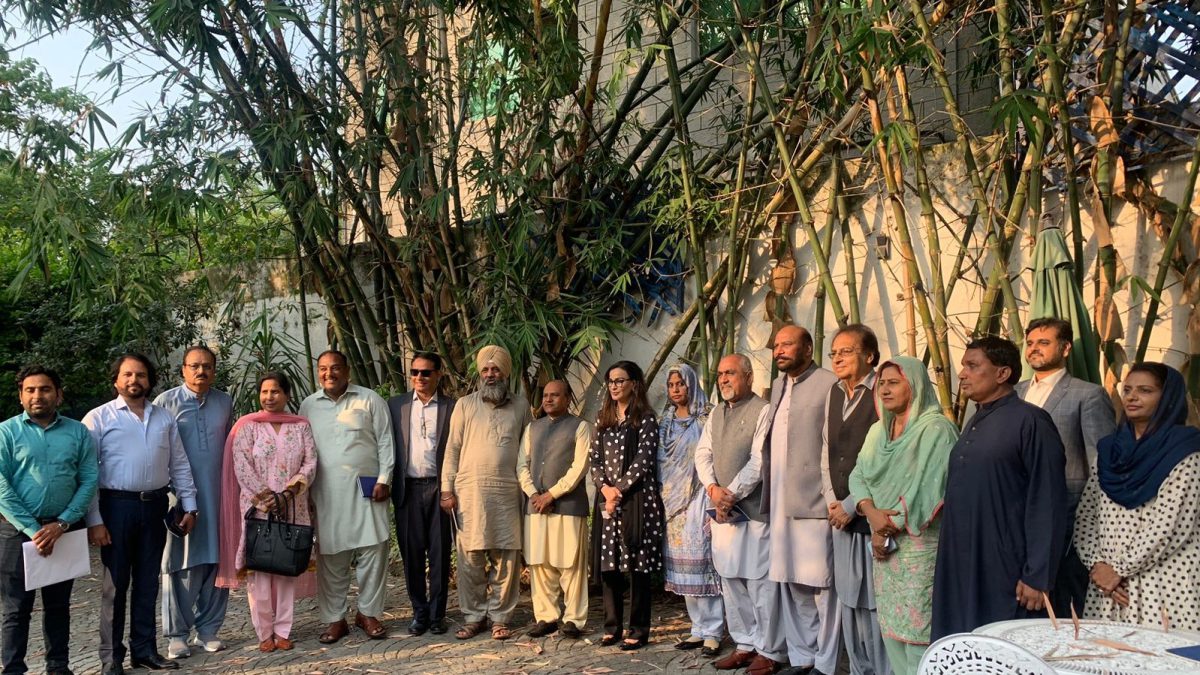Roundtable
Advancing Minority Rights Through Legislative Action
Date: September 14, 2023
“Incidents like Jaranwala symbolize our failure in protecting Pakistan’s minorities, and preventing extremism that continues to claim precious lives,” stated Senator Sherry Rehman while speaking with representatives of the National Lobbying Delegation for Minority Rights at Jinnah Institute. “I personally witnessed the devastation in Jaranwala; it had the hallmarks of a planned attack that was meant to inflict maximum damage and desecration,” she added.
In amplifying support for religious minorities, Senator Rehman stated that minority representatives in parliament had a critical role to play and must be made aware of the challenges faced by their community members, especially those who are farthest removed from public entitlements, and have little ability to negotiate with their systems. Political parties can push for progressive change for minorities in their manifestos, including greater job quotas and political representation, but more complex issues like marriage registration should be spearheaded by minorities themselves. She also cautioned that parliaments should not be seen as venues for legislative experimentation on sensitive religious issues, as that can spiral out of control.
Representatives from the National Lobbying Delegation stated that the protection of minorities is part and parcel of the right to full citizenship. They identified legislative interventions that have come after decades of policy advocacy and helped address long-standing legal challenges for minority communities. At the same time, several other areas undermine citizenship rights for minorities and need renewed political attention.
They highlighted the Hindu Marriage Bill that had not been enacted in Khyber Pakhtunkhwa and Punjab, nor had Rules of Business been settled in the provinces where the law had passed. Participants explained that no legal procedure existed to register a Hindu marriage before the current law was enacted. The Hindu community would get their marriages recognized through a variety of institutions, including the local panchayat, the Pakistan Hindu Council, or the local union council. NADRA commenced the registration of marital unions, but these must be solemnized by pundits in their respective communities. There are very few officially recognized pundits in certain districts, and this continues to limit the number of marriage registrations and divorces.
Participants also highlighted the need for updating the Christian Divorce Act of 1869 and the Christian Marriage Act of 1872, which have long fallen out of step with the Christian community’s demographics. They explained that existing Christian Personal Laws recognize only three main churches: the Church of Scotland, the Church of England, and the Roman Catholic Church. However, there are a considerable number of church denominations active in Pakistan today. It is imperative to advocate for the legalization and recognition of these other churches because it has a bearing on the solemnization of marriages, divorces, and the diverse religious needs and practices of the population.
In response to whether the state should enact specific personal laws for each church denomination, speakers pointed out that these issues have been resolved in legal precedents, but the overall reform of 19th-century laws is imperative. They highlighted that the impetus for a change in the law, particularly the Christian Divorce Act, gained momentum following the Ameen Masih case in late 2016. Masih’s petition challenged the limited grounds available for divorce to Christian men and women and called for the revival of Section 7 of the Christian Divorce Act, which had been omitted in 1981 during General Ziaul Haq’s rule. Section 7 allowed for divorce on grounds like the English Matrimonial Causes Act of 1973. This should be revived in a manner that does not discriminate against Christian women.
Speakers also highlighted that Christian community leaders have invested years of effort in drafting bills, reviewing them, and petitioning government bodies to enact legislation. However, despite years of effort and patient follow-through, governments do not prioritize minority-related legislation. They shared that the Ministry of Human Rights conducted extensive stakeholder consultations for the Christian Marriage and Divorce Bill 2019 from 2012 to 2019. After obtaining a no-objection certificate from the Ministry of Religious Affairs and Interfaith Harmony in 2019, the Cabinet granted in-principle approval to the Bill’s contents. The Bill comprises 106 sections and four schedules, applies nationwide, and sets the minimum marriage age at 18 in alignment with the Majority Act, 1875. Outdated sections related to marriage notices were removed, and nine new grounds for marriage dissolution have been proposed. However, the Bill is still with the Ministry of Law and Justice, awaiting further progress.
